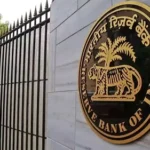In the first week of July 2024, the Reserve Bank of India (RBI) imposed penalties on five banks, including Punjab National Bank (PNB), for various regulatory non-compliance issues. This action underscores the central bank’s commitment to enforcing stringent regulatory standards within the banking sector to ensure financial stability and consumer protection.
Details of the Penalized Banks and Their Infractions
Punjab National Bank (PNB)
Punjab National Bank was fined for non-compliance with certain regulatory directives. The specifics of the infraction include failures related to risk management and operational guidelines, which are critical to maintaining the integrity of the banking operations.
Other Penalized Banks
The RBI also penalized four other banks for similar regulatory breaches:
- Central Cooperative Bank Bikaner: Fined for not adhering to NABARD guidelines on fraud classification, reporting, and monitoring.
- Vaish Cooperative Adarsh Bank: Penalized for non-compliance with KYC (Know Your Customer) norms.
- Samarth Sahakari Bank: Faced penalties for violating exposure norms and statutory restrictions.
- Indira Mahila Sahakari Bank: Penalized for non-compliance with RBI directions on policy and practice regarding nominal membership and exposure norms.
Regulatory Framework and Enforcement

RBI’s Enforcement Mechanism
The penalties imposed by the RBI are grounded in the provisions of the Banking Regulation Act, 1949. This legislation empowers the central bank to ensure compliance and take corrective actions against banks that fail to adhere to the established guidelines.
Importance of Compliance
Regulatory compliance in the banking sector is crucial for several reasons:
- Financial Stability: Ensures that banks operate within the framework that minimizes risks to the financial system.
- Consumer Protection: Safeguards the interests of depositors and borrowers by enforcing fair practices.
- Operational Integrity: Promotes transparency and accountability in banking operations.
Impact on the Banking Sector
Financial and Reputational Consequences
The imposition of penalties has both financial and reputational implications for the affected banks. Financial penalties reduce the banks’ profitability and signal operational inefficiencies or governance issues. Reputational damage can erode customer trust and impact future business prospects.
Sector-Wide Implications
The RBI’s actions serve as a warning to other banks about the consequences of regulatory non-compliance. This move is expected to prompt banks to strengthen their compliance frameworks, invest in better risk management systems, and ensure stricter adherence to guidelines.
In summary, the penalties imposed by the RBI on five banks, including PNB, highlight the ongoing challenges and importance of regulatory compliance in the Indian banking sector. These measures are a part of RBI’s broader strategy to enhance the resilience and stability of the financial system, ensuring it remains robust in the face of evolving risks.



















